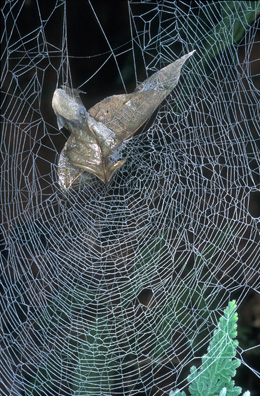The research in the Hormiga laboratory focuses on the systematics and evolutionary biology of spiders, with emphasis on orbweavers and their close relatives (Orbiculariae). We use morphological, molecular and behavioral characters to reconstruct the phylogenetic relationships of our study groups. We tackle questions that span from species level taxonomic problems, addressed using a monographic approach, to intra and interfamilial phylogenetic relationships. We have an active fieldwork program that has taken us around the world in search of our study organisms. Our most recent fieldwork has been carried out in several countries of the Neotropical region, Madagascar and Equatorial Africa, Australia and New Zealand. We also use comparative phylogenetic methods to study more general questions such as the evolution and diversification of web architecture, the evolution of sexual size dimorphism or the patterns of insular diversification and colonization in oceanic archipelagoes.
